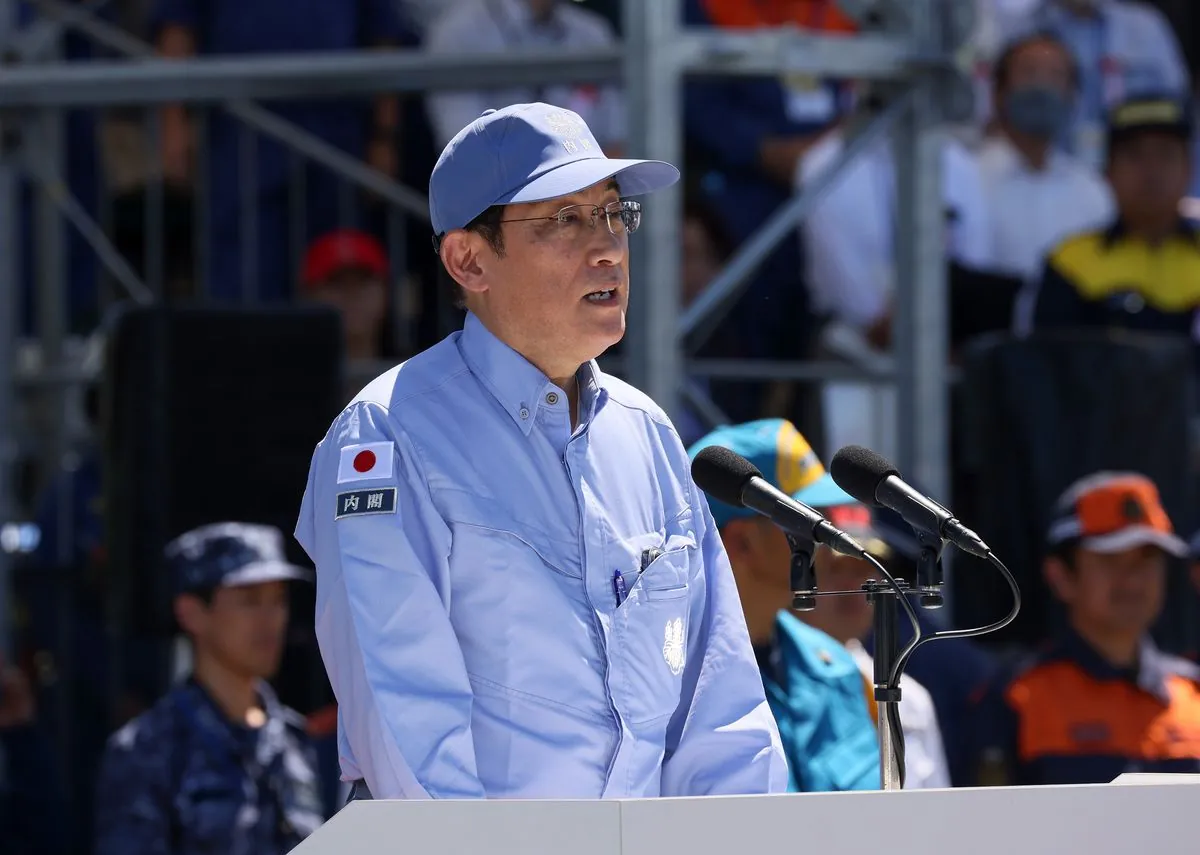Japan's PM Cancels Trip Amid Unprecedented Earthquake Risk Advisory
Japan issues first-ever major earthquake risk advisory, prompting PM Kishida to cancel Central Asia visit. Public anxiety rises as authorities warn of increased seismic activity in the Nankai Trough.

In an unprecedented move, Japan's Meteorological Agency (JMA) has issued its first-ever advisory warning of an increased risk of a major earthquake along the country's Pacific coast. This announcement, made on August 8, 2024, has prompted significant responses from both the government and the public.
Fumio Kishida, Japan's Prime Minister, has cancelled his planned visit to Central Asia and Mongolia in light of this advisory. The trip, originally scheduled for August 11-14, 2024, would have included stops in Kazakhstan, Uzbekistan, and Mongolia. Kishida stated, "I have decided to stay in the country for the next week or so to ensure our preparations and communications are in order."
The JMA's advisory follows a magnitude 7.1 earthquake that struck the southwestern island of Kyushu on August 8, 2024. While the advisory does not specify a timeframe for the potential event or call for evacuations, it has raised public anxiety and prompted precautionary measures.

The advisory focuses on the Nankai Trough, a submarine trench running along Japan's Pacific coast. Normally, the probability of a magnitude 8 or 9 earthquake occurring in this area within a 30-year period is estimated at 70% to 80%. However, the new advisory suggests that the likelihood has increased to a one-in-several-hundred chance in any given week, up from the usual one-in-a-thousand.
This heightened risk has led to panic buying in some areas, with supermarkets in Shizuoka reporting shortages of bottled water and reheatable rice packs. Some businesses and local authorities have also taken precautions. For instance, the seaside resort town of Shirahama in Wakayama prefecture has closed its beaches for a week and cancelled a planned fireworks display.
Japan's position on the Ring of Fire, responsible for 90% of the world's earthquakes, contributes to its high seismic activity. The country experiences about 1,500 earthquakes annually, necessitating advanced preparedness measures. Japan boasts the world's most sophisticated earthquake early-warning system and has implemented strict building codes for earthquake resistance.
The current alert system, implemented in 2019, aims to prepare the public for potential earthquakes despite the difficulty in predicting their occurrence. It includes two levels: an advisory for preparedness and a warning for evacuation in danger-prone areas.
Japan's history with devastating earthquakes, including the 2011 Tohoku disaster that claimed over 15,000 lives, underscores the importance of such preparedness measures. The country conducts regular earthquake drills, including an annual national drill on September 1, to ensure public readiness.
As Japan enters its summer holiday season, authorities continue to monitor the situation closely. The government's proactive approach, combined with the country's advanced seismic technology and public awareness, demonstrates Japan's commitment to mitigating the potential impact of natural disasters.
"But it is the first time it is issued and I believe people would be feeling anxious about it."
This unprecedented advisory serves as a reminder of the unpredictable nature of seismic events and the importance of constant vigilance and preparedness in earthquake-prone regions.


































